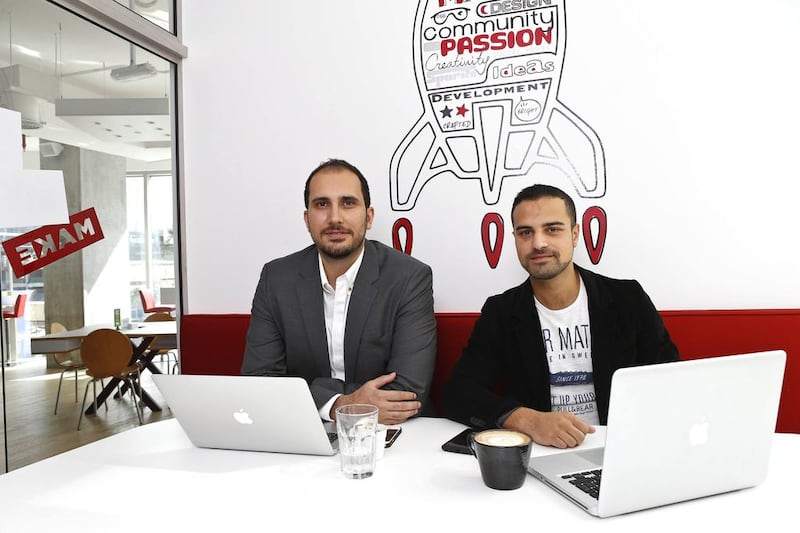Two entrepreneurs based in Dubai are aiming to bring the lesser-known folk tales of Iran and the broader Middle East to online and mobile phone gaming enthusiasts. Amir-Esmaeil Bozorgzadeh and Hossein Jalali are the co-founders of Gameguise, and both have roots in Iran. Their first offering, the Seven Quests, is based on a 1,000-year-old Farsi poem by Ferdowsi called The Shahnameh. Mr Bozorgzadeh, the chief executive of Gameguise, talks about the reasons behind it.
Why bring Iranian tales and folk tales to online games?
The whole thing about games is about storytelling. We have these stories such as Hercules that have been used over and over again. With The Shahnameh, it has not been made into an online game. The closest that has come is comics, such as that from the US-based publishing house Hyperwerks. They have even allowed us to draw inspiration from their artwork for our online game. Our first game from Gameguise is the Seven Quests, referring to the hero Rostam’s seven trials. The Shahnameh has been popular with the older generation, but we are taking this to people interested in games with a modern storytelling method and in a different language. We also want to share Middle Eastern tales and history to the rest of the world, as a way of bridging the gap between the Middle East with other cultures.
What are your plans for this game?
We will launch the beta version on May 1 in English, and by the fourth quarter we expect to launch a version in Portuguese, keeping in mind the players in Brazil. The Seven Quests could be played only on iPhones and iPads. We licensed the game engine from Falafel Games, which has an office in Hangzhou, China. We redecorated and reorganised [the engine] to develop the new game, but we did not start from scratch. This way, investment is lower, risk is lower, and it is fast enough to get into the market.
The game is free to download. What is your business model?
The players can buy online currency with real dollars if they want to speed up their development in the game. That could range from US$10 to $300 per package. Depending on the game, typically some 10 per cent of the players on average are willing to pay. We would refine the game once every month, based on the feedback, and do it in patches during the least trafficked point. That is because the games are up and running 24/7. In Dubai, Gameguise has five members in the staff, including myself. We expect to break even nine months after the launch, and come up with two more titles by the end of the year. These could be based on another Shahnameh tale or a Middle Eastern tale. We project to make between $140,000 and $190,000 within the first year of commercial release.
Who is your target audience?
The Iranian diaspora, in places such as Dubai and Los Angeles, because they are the low-hanging fruit and you need as many people as possible to play the game simultaneously. They are most likely to be already acquainted with Ferdowsi’s work, but quite a few Arabic nationals around the Middle East and North Africa region will also be aware of the tale. iTunes opened up in Iran around eight months ago, but the game is targeted towards English-speaking, western markets. The Seven Quests is an MMO game, where thousands of people play the game simultaneously in real time. It also has role-playing elements. We are marketing it mainly through iTunes, Facebook and mobile advertisements.
How much did you invest in it?
The UAE-based [conglomerate] Cee Cee Holding’s subsidiary company called Brown Sugar Media, a twofour54 company, invested $150,000 for the title Seven Quests. And Brown Sugar Media owns a minority share — 40 per cent — of the title.
You also launched Conovi last year, which marketed an online game adapted for the Iranian market. How is that going?
Last month we launched our second game, a local version of Pirate Century, known as the Ocean Wars in Iran, with a partnership with the German-game developer SlipShift. Again, we had to adapt it to the region, and changed [spirits] to doogh, a yoghurt drink popular in Iran.
ssahoo@thenational.ae





